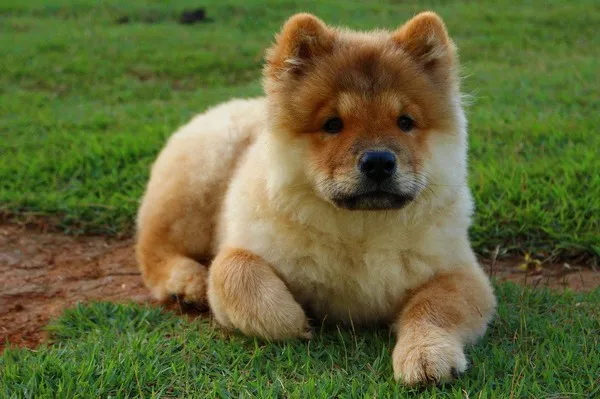Chow Chows are known for their distinctive appearance and strong-willed personalities. While these dogs can be loyal and affectionate companions, they may also display biting behavior, which can be concerning for both owners and those interacting with them. In this article, we’ll delve into the reasons behind why Chow Chows might bite and explore effective solutions for managing and preventing this behavior.
Aspect 1: Protective Instincts
Chow Chows have a strong protective instinct ingrained in their nature. Historically bred as guard dogs, they are naturally cautious and reserved around strangers. This protective nature can lead to biting if they perceive a threat to themselves or their family members. It’s crucial to socialize your Chow Chow from an early age to help them differentiate between real threats and harmless situations.
Early Socialization: Introduce your Chow Chow to various people, animals, and environments during their puppyhood. This exposure can help them develop a more balanced and confident demeanor.
Positive Experiences: Ensure that your Chow Chow’s interactions with new people and animals are positive. Reward them for calm and non-aggressive behavior in unfamiliar situations.
Aspect 2: Territorial Behavior
Chow Chows tend to be territorial, and they may become aggressive if they feel their territory is being invaded. This territorial behavior can result in biting, especially if they feel threatened by unfamiliar individuals or animals entering their space.
Boundaries: Establish clear boundaries for your Chow Chow and provide them with a designated safe space. This can help reduce their need to defend their territory aggressively.
Positive Reinforcement: Reward your Chow Chow for calm behavior when new people or animals are present. Gradually exposing them to different situations can help them become more comfortable with sharing their space.
Aspect 3: Fear and Anxiety
Chow Chows can develop fear and anxiety, which might trigger biting behavior as a defensive response. Fearful dogs may resort to biting as a way to protect themselves from perceived threats.
Identifying Triggers: Pay attention to situations, sounds, or people that seem to trigger fear in your Chow Chow. Understanding these triggers can help you avoid them or address them in a controlled manner.
Desensitization and Counterconditioning: Work with a professional dog trainer to desensitize your Chow Chow to their fears gradually. Positive reinforcement techniques can help change their emotional response to these triggers.
Aspect 4: Lack of Training and Socialization
Proper training and socialization play a significant role in a Chow Chow’s behavior. Without sufficient training and exposure to different environments, they may not develop the necessary skills to interact with people and animals appropriately.
Obedience Training: Enroll your Chow Chow in obedience classes to teach them basic commands and proper behavior in various situations. This can establish you as the pack leader and improve their overall behavior.
Consistent Socialization: Continuously expose your Chow Chow to new people, animals, and environments to prevent them from becoming overly anxious or defensive in unfamiliar situations.
Aspect 5: Pain or Medical Issues
Sometimes, biting behavior can stem from pain or underlying medical conditions. If your Chow Chow suddenly starts biting or becomes aggressive, it’s essential to consult a veterinarian to rule out any health issues.
Health Checkup: If your Chow Chow’s behavior changes unexpectedly, schedule a comprehensive health checkup to identify any potential pain or discomfort.
Behavioral Assessment: Consult a professional dog behaviorist to assess whether the biting behavior is linked to pain, anxiety, or other underlying issues.
Conclusion:
Understanding the reasons behind Chow Chow biting behavior is the first step in addressing and managing it effectively. Whether due to protective instincts, fear, territorial tendencies, lack of socialization, or pain, each of these factors can contribute to a Chow Chow’s inclination to bite. By applying the solutions and strategies mentioned in this article, you can help your Chow Chow develop into a well-adjusted and confident companion, minimizing the likelihood of biting and fostering a harmonious relationship between you and your furry friend. Remember that patience, positive reinforcement, and professional guidance can make a significant difference in reshaping your Chow Chow’s behavior for the better.


